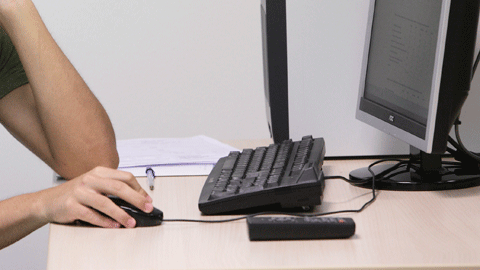UAB to offer new Coursera platform massive online courses

13/05/2015
The UAB offers new Coursera platform massive online courses (MOOC): "Detection of Objects", "Psychological First Aid" and "Emotions: a Philosophical Introduction". The first two will be given in Spanish and there are already 24,000 and 8,000 people registered, respectively; the third will be in English and already counts with 21,000 people signed up.
The UAB is the first university in Spain to offer MOOC courses (Massive Online Open Courses) through Coursera, an internationally high-prestige platform. These courses can be followed independently on the internet, are addressed to the whole world and are free. For a small fee, however, participants may obtain a certificate stating they attended the course.
The courses offered by the UAB have reached excellent levels of acceptance and some have already been offered more than once, such as “Corrección y estilo en espanyol”, which included almost 28,000 people in its second edition, which took place on 13 April. A total of over 200,000 people have registered for a MOOC courses offered by the UAB and this number is growing.
Psychological aid for victims of fires or conflicts
The course “Psychological First Aid” is offered by lecturers of the UAB Faculty of Psychology working at the Unit of Trauma, Crisis and Conflicts of Barcelona (UTCCB), a pioneering unit offering specialised interventions for people, groups and organisations before, during and after fire emergencies and conflicts.
The objectives of the course focus on applying psychological first aid services to the general public, with special attention on adapting these techniques to the aid of children, preadolescents and adolescents. The course also presents special situations, such as applying these psychological services to people with psychical and sensory disabilities, and in difficult cases such as after a suicide or in international emergency aid operations.
This MOOC is addressed to professionals in the health care, educational and social sectors, as well as to volunteers collaborating to help groups suffering from severe stress and trauma (patient associations, NGOs, etc.). The course, moreover, is based on the protocols proposed by the World Health Organisation.
What emotions are and the role they play
The MOOC “Emotions: a Philosophical Introduction” will be offered by Jordi Vallverdú, lecturer of the UAB Department of Philosophy and renowned expert in the philosophy of science and computation, bioethics and scientific epistemology.
Life is basically emotional and emotions are very much related to the phenomenon of consciousness. When someone cannot recognise the emotions of another, that person remains separated from social life, given that the key to society is empathy. And ethical systems often are based on two principles related to emotions: obtaining pleasure and suffering pain. The course aims to offer tools with which to answer several questions: Why do you we have emotions? What is the evolutionary reason for having them? What happens when a person is unable to recognise their own emotions? Do machines have emotions as we do?
The different sessions will serve to discuss different issues in neurology, psychology, anthropology, philosophy, robotics and artificial intelligence. The course is offered using unspecialised language so that students from all academic disciplines can follow it.
Recognition of objects through computer vision
The course “Detection of Objects” is given in Spanish by lecturers of the UAB Department of Computer Sciences. The department conducts research at the Computer Vision Centre (CVC) belonging to the UAB and the Government of Catalonia. Located on the Bellaterra campus, it is a leading institution in R&D in the fields of detection and recognition of objects through images.
The MOOC is addressed to computer, engineering and mathematic students, as well as others will skills in programming. The objective of the course is for students to acquire the basic principles of any automatic object detection and recognition system by using computer vision techniques, and for them to obtain the tools needed to develop their own systems.
The contents include basic training concepts in image, detection of outlines, characteristics of regions, etc. The course lasts six weeks and divided into the following blocks: introduction to the detection of objects, classification of objects, detection of objects, examples of detectors and advanced techniques.
More information:
Coursera